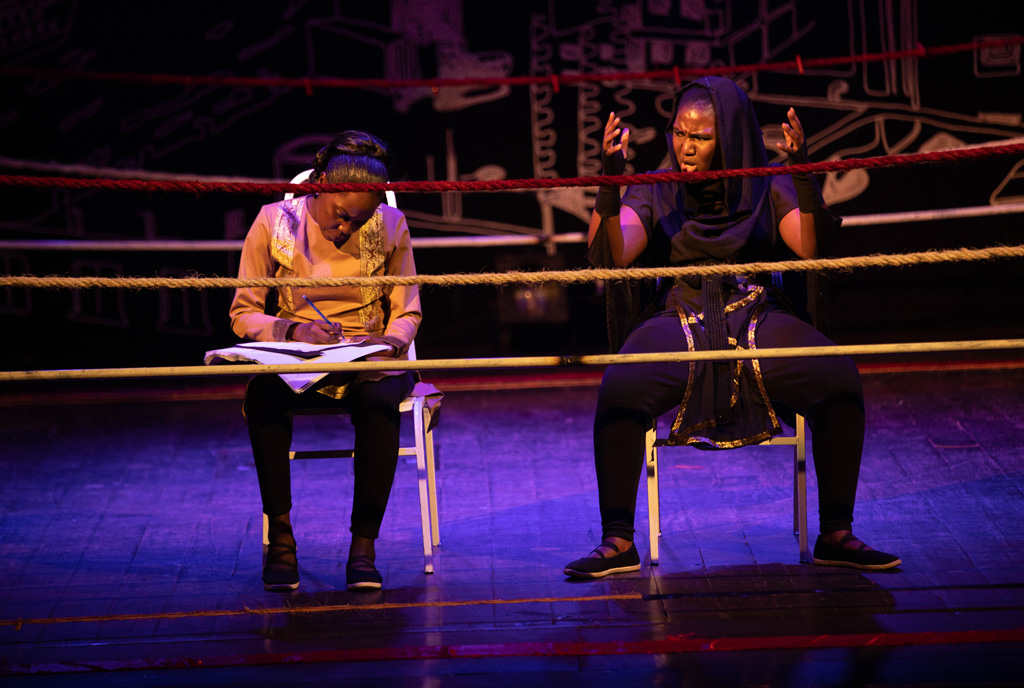Superheros are not a common genre of film, let alone theatre in Uganda, so to imagine that Judith Adong took a risk with Niqabi Ninja with much success, is promising.
Since Black Panther premiered in Uganda last year, the number of Ugandans that have picked interest in comics has been increasing by day.
It is not surprising that when Silent Voices Uganda released the artwork for their latest production Niqabi Ninja, many onlookers were quick to believe it was actually a superhero film.
Who would dare do a superhero theatre play?
But it was Judith Adong’s take on Sara Sharaawi’s Niqabi Ninja, an Egyptian play set in Cairo at the time of the Arab spring and some parts particularly set in Tahrir Square, the face of the uprising. Complete with martial arts, ninja costumes, props and as it progresses, they even jump off buildings.
The production presents another face of the uprising that may not be known to many people, one that stole from women who came out to protest the injustices but instead had injustices committed unto them by some of the men that came out to protest.
Niqabi Ninja or Hana is a revenging superhero born in Cairo and on a mission to avenge each act of sexual harassment she has suffered at the hands of men — like a woman who has seen it all, she even has a number of punishments listed to dish out.
Two-people cast
But unlike many productions that tend to ambiguously address abuse or harassment, Sharaawi tends to give harassment an event and this was the 2011 Egyptian revolution with more bias towards the events in Cairo.
It has been documented that in the Tahrir Square, men would encircle a woman while outer rings of men deter rescuers. The attackers regularly pretended to be there to help the women, adding to the confusion. Women reported being groped, stripped, beaten, bitten, and raped.
Portrayed by actress Rehema Nanfuka and Lisa Gitu an actress and TV personality from Zimbabwe, Niqabi Ninja adds to the many voices that have been talking about harassment and the most important thing is the fact that it comes at a time when the world is generally talking harassment and ending it altogether.
Adong, for whom this production was part of an annual apprenticeship programme she organises, notes that she first saw the production in Cape Town in 2016 and immediately thought of bringing it to Uganda.
And she did not disappoint, her take on a female and this time a black superhero was one that had a lot to offer; a show that demanded much from her two-people cast both physically, mentally and above it all, emotionally.
You felt Nanfuka’s pain when she screamed, froze at the rape scene as it was punctuated by her sound and the music that was not only beautiful but haunting too.



























































